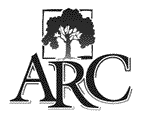
Computer Information Science
 |
Michael
L'Estrange Computer Information Science |
|
|
|
||
| |
||
| Instructor: | Michael L'Estrange |
|---|---|
| Instructor Email: | lestram@arc.losrios.edu |
| Instructor Web Page: | http://ic.arc.losrios.edu/~lestram |
| Instructor Phone: | (916)-484-8147 |
| Instructor Office: | ARC main campus, Comp-MathCmplx 405 |
| Office hours: | Mon 5-6pm (May be in Comp-MathCmplx 411) Tues 2:20pm-3:20pm, 4:30pm-5:30pm Wed 5-6pm (May be in Comp-MathCmplx 411) Thurs 4:30pm-5:30pm |
| Course Code #: | 10534 |
| Class Location: | Comp-MathCmplx 407 |
| Meeting Times: | TuTh 5:30pm-6:50pm |
| Semester: | Fall 2018 |
| Term: | Full term: Aug 25, 2018 - Dec 20, 2018 |
| First meeting: | 27 August 2018 |
| Final Examination: | Tuesday, December 18, 2018, 5:45-7:45 pm |
| Prerequisite: | None. |
| Advisory: | None. |
| Accepted for credit: | CSU & UC |
| Hours: | 54 hours lecture, 108 hours out-of-class work, for a total of 162 student learning hours. |
| Units: | 3 |
This course examines information technology and its role in solving business problems. Topics include information systems, database management systems, networking, e-commerce, ethics and security, and computer systems hardware and software components. These concepts and related methods are applied through hands-on projects to develop computer-based solutions to business problems.
Upon completion of this course, the student will be able to:
Required:
Completion of the exercises and projects required for this class probabely requires access to a computer loaded with a specific version of the Windows Operating System or another type of operating system. To complete lab assignments, students may use the ARC B&CS Area Computer Lab, Comp-MathCmplx 412. It is not necessary to purchase a new copy of Windows to use on your own home computer. However, Students may find using a product such as VMware workstation player or the free Virtual Box will allow them to complete assignments without damaging their home computer. Feel free to ask the instructor more about VM hypervisor software.
| CISC 310 Introduction to Computer Information Science Course Lesson Plan |
||
|---|---|---|
| Week of |
Topics |
Assignment |
| August 27 |
|
|
|
|
|
|
| September 10 |
|
|
| September 17 |
|
|
| September 24 |
|
|
| October 1 |
|
|
October 8 |
|
|
| October 15 |
Catch-up Day |
|
| October 22 |
|
|
| October 29 |
|
|
| November 5 |
|
|
| November 12 |
|
|
| November 19 |
|
|
| November 26 |
|
|
| December 3 |
|
|
| December 10 |
|
|
| Thursday, December 13, 2018, 5:45-7:45 pm |
|
|
The grade in this course will be determined by student performance in each of the following areas, and weighted as described in the following charts.
| Grade Assessment Weighting | |
|---|---|
| Quizzes |
(50 points) 10% |
| Homework Assignments |
(150 points) 30% |
| Examinations | (200 points) 40% |
| Projects and/or Presentation |
(100 points) 20% |
| Grade Assignment by Total Points | ||
|---|---|---|
| Points Obtained | Total % | Grade Assigned |
| 450+ | 90% | A |
| 400+ | 80% | B |
| 350+ | 70% | C |
| 300+ | 60% | D |
| less than 300 |
below 60% | F |